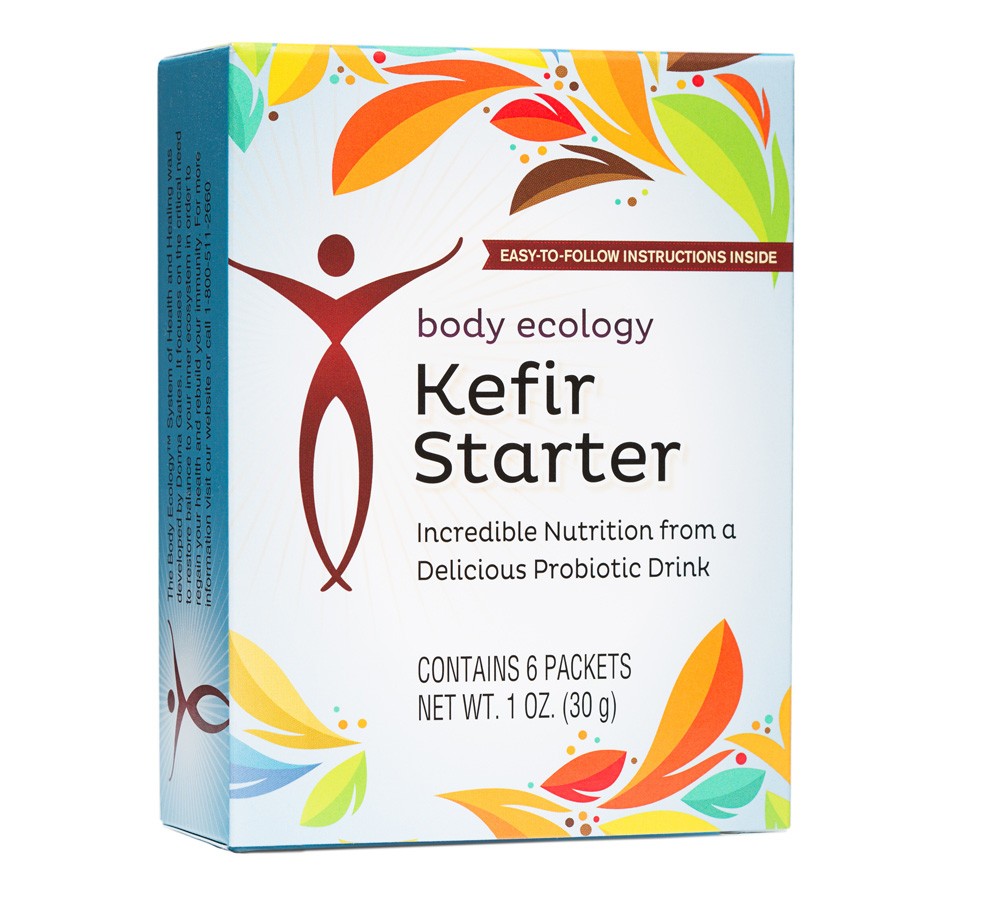Nutritional Content of Kefir
More than just beneficial bacteria!
In addition to beneficial bacteria and yeast, kefir contains minerals and essential amino acids that help the body with healing and maintenance functions. The complete proteins in kefir are partially digested and therefore more easily utilized by the body. Tryptophan, one of the essential amino acids abundant in kefir, is well known for its relaxing effect on the nervous system. Because kefir also offers an abundance of calcium and magnesium, which are also important minerals for a healthy nervous system, kefir in the diet can have a particularly profound calming effect on the nerves.
Kefir’s ample supply of phosphorus, the second most abundant mineral in our bodies, helps utilize carbohydrates, fats, and proteins for cell growth, maintenance and energy.
Kefir is rich in Vitamin B12, B1, and Vitamin K. It is an excellent source of biotin, a B Vitamin which aids the body’s assimilation of other B Vitamins, such as folic acid, pantothenic acid, and B12. The numerous benefits of maintaining adequate B vitamin intake range from regulation of the kidneys, liver and nervous system to helping relieve skin disorders, boost energy and promote longevity.
-
Rick
-
Nichole
-
gloria
-
-
mohana
-
mary
-
Diane
-
-
CHRISTIAN GUTHRIE
-
Peace
-
gloria
-
-
Shaon
-
xtopher66
-
Cherry Fairy
-
Angus Files
-
-
-
Dan []
-
-
Rene
-
Baking N Books
-
kindelan
-
Olga Szewczuk
-
Hussein
-
-
kris gallagher
-
Eleanor Vallone
-
-
-
-
Kathy
-
Leanna (Aust)
-
jackie biggs
-
-
Peter
-
-
bequi
-
joseph
-
-
Donnie
-
Nellie
-
Faatimah
-
The Table of Promise
-
Anna
-
jackie biggs
-
-
jackie biggs
-
Marcela
-
Diane
-
Kathy
-
-
Ahmad
-
-
Luda
-
Maureen
-
Meadowsweet
-
Elena
-
Scott
-
The Table of Promise
-
Florisabel Castillo
-
Renee
-
Robin Davidson
-
Renee
-
Robin Davidson
-
Renee
-
Corene Heaps
-
TTeddy
-
TTeddy
-
Joan Linney
-
Trish Truitt
-
-
-
Eric Rowland
-
-
Ed
-
Estelle de Bruyn
-
Marcy Grote
-
-
Pat
-
Renee
-
Marcie Perry
-
-
Desperate
-
Elena
-
Josh
-
-
Charlie
-
molly
-
Wheat is Evil
-
-
Ahmad
-
-
Lynn
-
Andrea
-
Lynn
-
Elena
-
-
-
Elena
-
-
brenda bartekds
-
Laird
-
-
pam swain
-
Joan Rivers
-
Elena
-
-
lillian ravago
-
lillian ravago
-
Elena
-
Po
-
-
-
-
Katerina
-
Myrto
-
Laird
-
Andrea
-
-
Ellen
-
danimal
-

